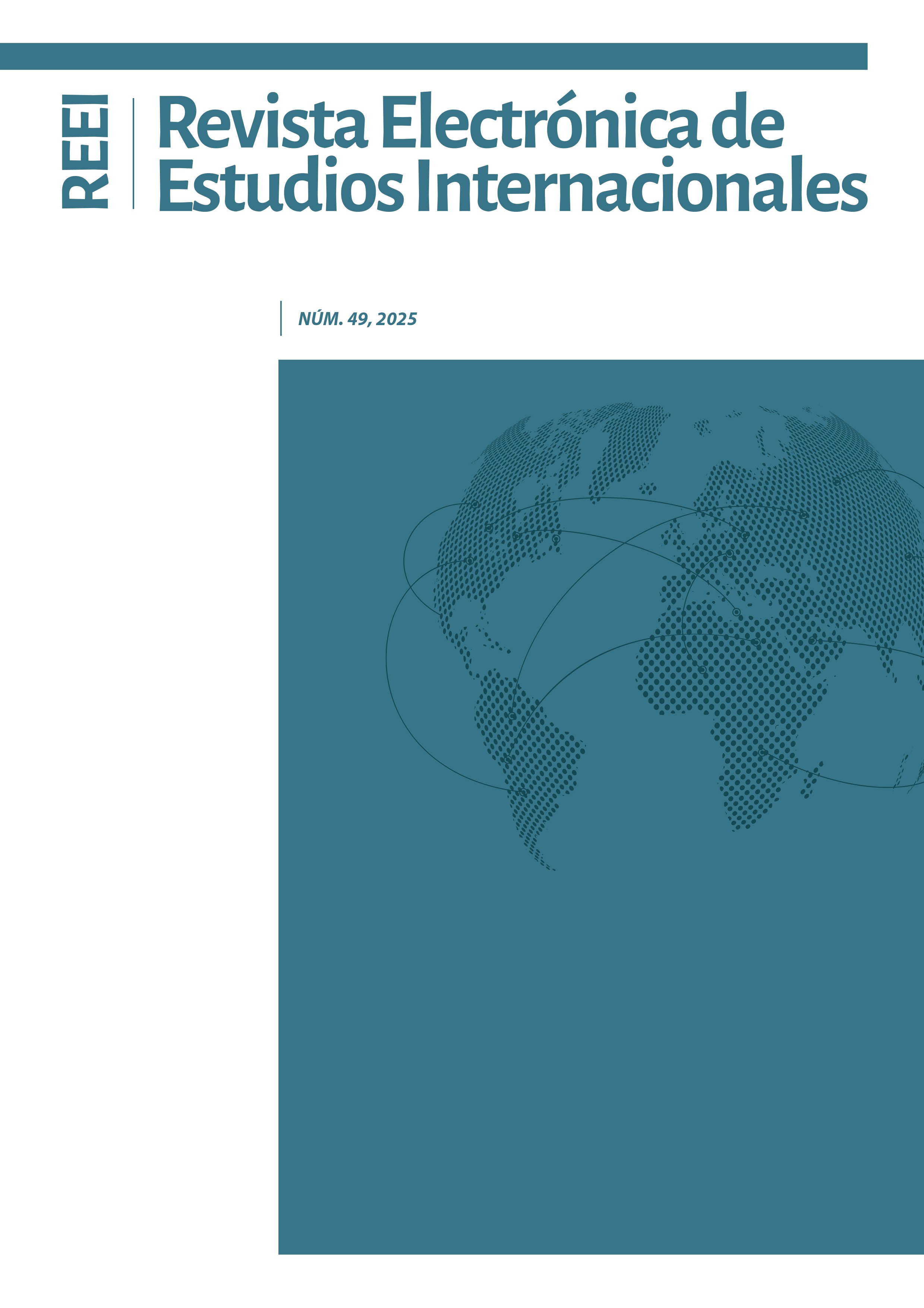What does China think? Approaches to its global role from the Chinese academy of international relations
DOI:
https://doi.org/10.36151/reei.49.09Keywords:
International Relations theory, Global International Relations, China, Moral Realism, Relational TheoryAbstract
In recent years, international society is undergoing transformations in the material and social realm of a magnitude yet to be determined. The rise of new powers far from Western influence and their progressive insertion into global dynamics with greater assertiveness is, doubtlessly, one of the greatest challenges of the discipline for the coming decades. At the same time, the West’s loss of power has spurred analyses that criticize the ethnocentrism of IR academia and advocate for a globalization of international studies. In the case of China, both dynamics are connected, as it is the rising power with the greatest capacity to transform the liberal international order and, at the same time, witnesses a notable effervescence of International Relations studies nationally, destined to explain its rise in its terms. This article analyses the interaction between both dynamics with a double aim: to contribute to the study of the decentralization process of International Relations and to delve deeper into Chinese theories of IR to understand the rise of China and its future actions from an indigenous perspective.
Downloads
Downloads
Published
Issue
Section
License
Copyright (c) 2025 Revista Electrónica de Estudios Internacionales

This work is licensed under a Creative Commons Attribution-NonCommercial-NoDerivatives 4.0 International License.




